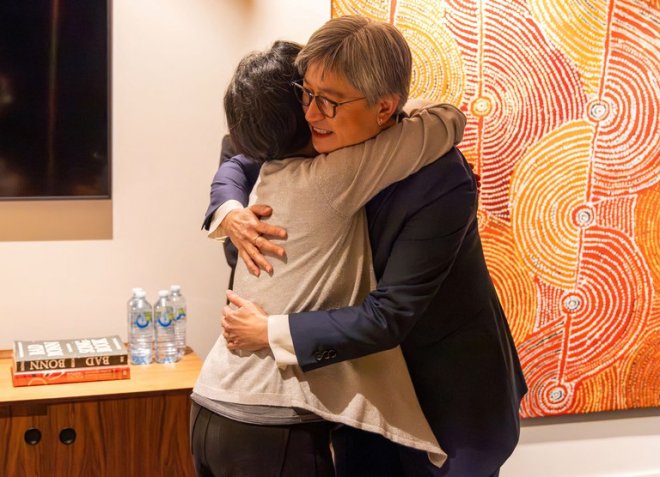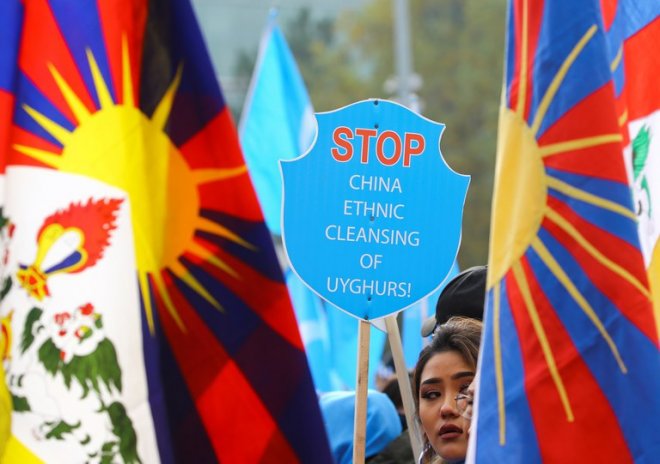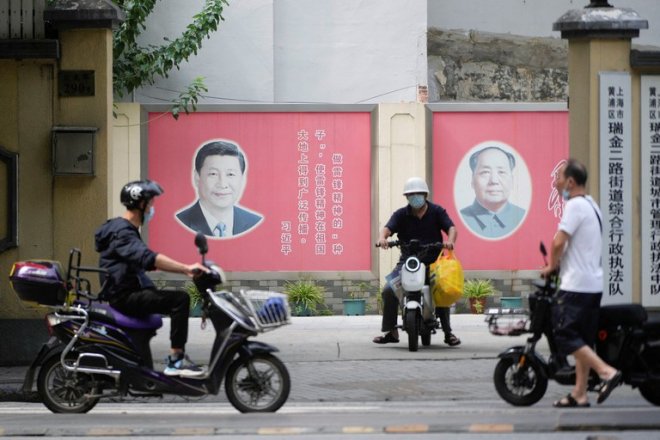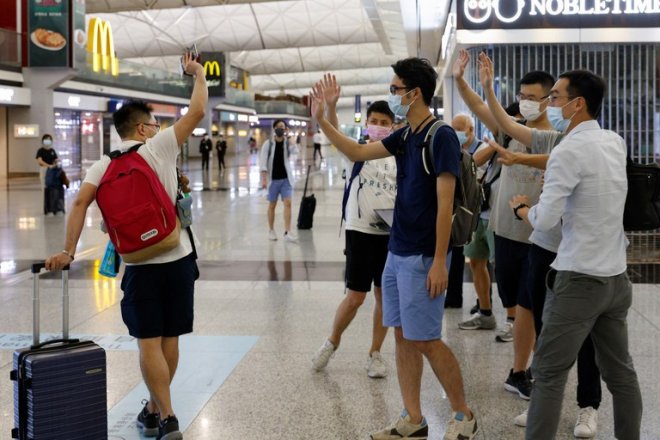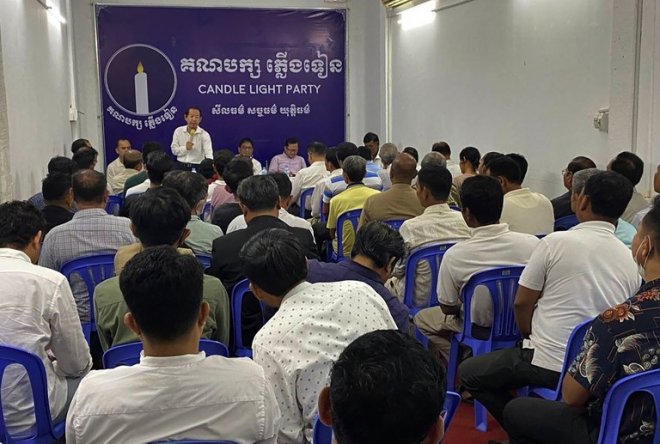Indonesian FM: Jakarta has quietly engaged with Myanmar stakeholders, including NUG
ASEAN chair Indonesia has quietly engaged with the Burmese parallel civilian government and military administration, as well as China, India and Thailand, to solve Myanmar’s post-coup strife, Foreign Minister Retno Marsudi said Friday.This is the first concrete effort publicly announced by Indonesia, this year’s chair of the Association of Southeast Asian Nations (ASEAN), which has come under heavy criticism during the past two years for failing to rein in Myanmar’s military rulers.
The goal of these engagements – more than 60 of them this year – is to build trust “with non-megaphone diplomacy,” Retno told reporters in Jakarta, although she acknowledged that Myanmar stakeholders’ positions diverge considerably.
“The engagements were conducted in the form of both virtual and in-person field visits. … Quiet diplomacy does not mean we did not do anything. In fact, for the past four months, Indonesia has done many things,” Retno said about Indonesia’s efforts as the 2023 ASEAN chair.
“The aim is to provide space for all stakeholders to build trust in order to be more open in communication. This approach was welcomed by all parties including stakeholders in Myanmar.”
Among the stakeholders Indonesia has engaged with are the Myanmar State Administration Council, as the junta is officially known; the shadow National Unity Government (NUG); Ethnic Armed Organizations in Myanmar; the European Union; Japan; the United Nations and the United States, Retno said.
“[I]t has to be acknowledged that the differences in the positions of the stakeholders in Myanmar are wide and deep,” the minister acknowledged.
The NUG, which comprises elected lawmakers and members of parliament ousted in the Feb. 1 2021 Myanmar military coup, confirmed to Radio Free Asia that meetings with Indonesia did take place after it assumed ASEAN’s chairmanship this year.
“After Indonesia took over chairmanship of ASEAN, we have had an in-person meeting with the foreign minister of Indonesia as well as members of the special envoy office. NUG has had in-person meetings as well as online discussions with them,” Zin Mar Aung, the NUG’s foreign minister, told RFA Burmese.
“These meetings were held by mutual consent to not publicize their details. … It is difficult to say on what basis to judge these discussions in terms of progress. I must say that ASEAN is focusing on everything within its power to handle the Myanmar crisis but whether its attempts are satisfactory or how much progress it has made can only be decided after seeing what decisions it will make at the next ASEAN summit,” she added.
The summit is scheduled for May 9-11 in Labuan Bajo, in Indonesia’s East Nusa Tenggara province.
Retno said that as ASEAN chair, Indonesia would not give up on efforts to solve the Myanmar crisis that erupted after the military toppled the elected government.
There needs to be an end to bloodshed in the beleaguered country, Indonesia’s top diplomat said.
“Violence must stop, I repeat violence must be immediately discontinued. Without stopping violence, there will be no peace in Myanmar,” Retno said. She added she would “communicate with stakeholders to ensure progress in delivering humanitarian assistance.”
The Myanmar military meanwhile has ignored a five-point consensus it agreed to with ASEAN in April 2021, one of the main points of which was an end to violence. Its forces have also killed more than 3,400 people since the generals seized power.
But aside from barring the junta’s representatives from the ASEAN summit and top ministerial meetings, the regional bloc has done little else to penalize the Myanmar military for going back on its word.
‘Need to demonstrate some wins’
Regional observers and analysts said they had mixed feelings about Indonesia’s efforts.
The engagements might reap benefits in the longer term, but it is not clear what good they will do in the near term during Jakarta’s ASEAN chairmanship, said Hunter Marston, a Southeast Asia researcher at Australian National University.
“Indonesia will need to demonstrate some wins soon or utilize its influence to bring various stakeholders together before India, Thailand, and the CLV [Cambodia, Laos, Vietnam] countries achieve an end run around Jakarta, further discrediting ASEAN and its failed five- point consensus,” Marston told BenarNews, an RFA-affiliated online news service.
“Jakarta may want to consider an ASEAN+ model which moves ahead without Thailand and, or Vietnam’s approval and invites dialogue partners such as Australia, Japan, and the U.S. to widen the talks and give them more leverage over Myanmar’s various stakeholders, but that may require Western democracies overcome their revulsion to sitting down with the junta at some point,” he added.
Analysts have said that the views of Thailand, and authoritarian states Cambodia, Laos, and Vietnam diverge from other ASEAN member-states on the Myanmar issue. They are more supportive of the Burmese junta and believe the regional bloc should not interfere in the internal affairs of a member.
Thailand and India’s Track 1.5 meetings were outpacing and overshadowing the ASEAN-led process, he said. Marston was referring to meetings in New Delhi in late April, and in Bangkok in March.
Track 1.5 talks usually include government officials, who take part in an unofficial capacity, and non-governmental specialists.
The April meeting, according to media reports, included Myanmar junta representatives, China, India, Japan and five ASEAN member-states: Cambodia, Laos, Thailand and Vietnam and Indonesia.
One analyst, Teuku Rezasyah, from Padjadjaran University, said Indonesia’s move to involve countries outside Southeast Asia, such as India and China, and the U.N., could be a positive step.
“So far bilateral has not worked, regional has not worked either. By bringing this into a global issue, it is hoped that this will put pressure on Myanmar because they don’t want this to become an international issue,” the international relations professor told BenarNews.
One ASEAN observer from the state research agency, BRIN, concurred, especially about involving China and India.
“China is very close to Myanmar so it can be asked to encourage Myanmar to implement the five-point consensus,” BRIN’s Pandu Prayoga told BenarNews.
“India can be a counterbalance so that Indonesia is not completely dependent on China.
RFA Burmese contributed to this report. BenarNews is an RFA-afilliated news service.
|
本篇 |
不想錯過? 請追蹤FB專頁! |
| 喜歡這篇嗎?快分享吧! |
相關文章
AsianNewsCast









